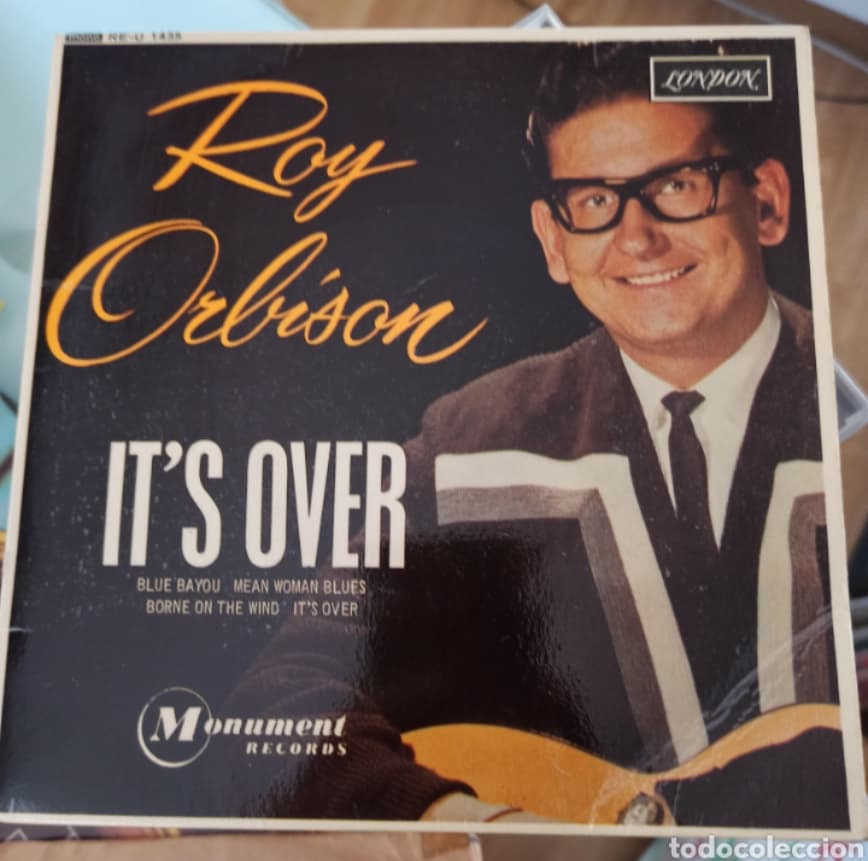
Roy Orbison – “It’s Over”: A Powerful Elegy of Love’s Demise
Roy Orbison was a master of conveying profound emotion through his music, and “It’s Over,” released in 1964, stands as a poignant testament to his ability to capture the pain of lost love. More than just a simple breakup song, “It’s Over” is a dramatic and operatic exploration of heartbreak, acceptance, and the finality of a relationship’s end. This analysis will explore the musical composition, lyrical themes, and lasting impact of this emotionally charged masterpiece.
“It’s Over,” written by Roy Orbison and Bill Dees, is characterized by its dramatic arrangement and Orbison’s soaring vocals. The song begins with a somber piano melody, setting a tone of melancholy and reflection. As the song progresses, the instrumentation gradually builds, incorporating strings, drums, and backing vocals, creating a sense of growing emotional intensity.
The song’s structure is carefully crafted to enhance the emotional impact of the lyrics. The verses are relatively restrained, focusing on the narrator’s internal struggle, while the choruses are powerful and cathartic, expressing the full weight of his heartbreak. The use of dynamics is particularly effective, with the song moving from quiet introspection to powerful, full-throated vocals, mirroring the narrator’s emotional journey.
The lyrics of “It’s Over” are stark and direct, leaving no room for ambiguity. The narrator acknowledges the end of his relationship, accepting the pain and finality of the situation. There’s no plea for reconciliation, no lingering hope for a second chance; it’s simply an acceptance of the end. Lines like “It’s over, it’s over, it’s over” are repeated with a sense of resignation and finality, emphasizing the irrevocable nature of the breakup.
The lyrics also explore the lingering memories of the relationship, acknowledging the joy and happiness that once existed. However, these memories serve only to heighten the present pain, emphasizing the loss and the emptiness that remains. The song captures the complex emotions that accompany a breakup, including sadness, regret, and a sense of closure.
Orbison’s vocal performance is the heart and soul of “It’s Over.” He delivers the lyrics with a raw vulnerability and emotional intensity that is both captivating and heartbreaking. His voice soars and dips, conveying the full range of emotions associated with heartbreak, from quiet despair to powerful catharsis.
His use of vibrato and his ability to hold long, sustained notes adds to the song’s dramatic impact. The final notes, particularly the drawn-out “over,” are delivered with a sense of finality and resignation, leaving a lasting impression on the listener. It’s a performance that showcases Orbison’s incredible vocal range and his unparalleled ability to convey deep emotion through his singing.
“It’s Over” became a significant hit for Orbison, reaching number nine on the Billboard Hot 100. It has since become a classic example of the heartbreak ballad, influencing countless artists and continuing to resonate with listeners who have experienced the pain of lost love.
The song’s enduring appeal lies in its raw honesty and its ability to tap into universal emotions. Orbison’s masterful vocal performance, combined with the song’s dramatic arrangement and poignant lyrics, creates a truly unforgettable listening experience. “It’s Over” stands as a testament to Orbison’s unique talent and his lasting contribution to music, a powerful and timeless exploration of love’s demise. It’s a song that continues to resonate with anyone who has known the pain of saying goodbye.